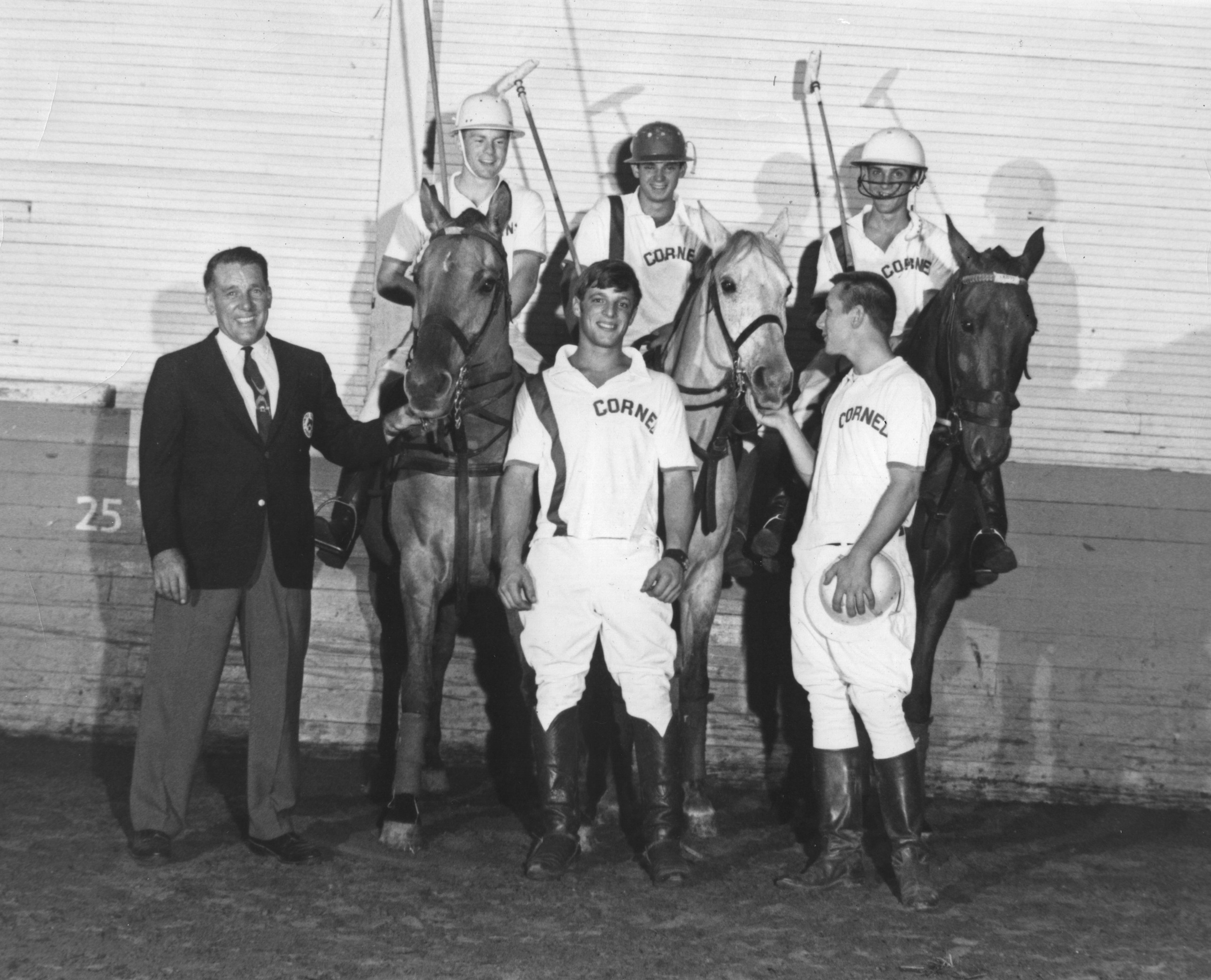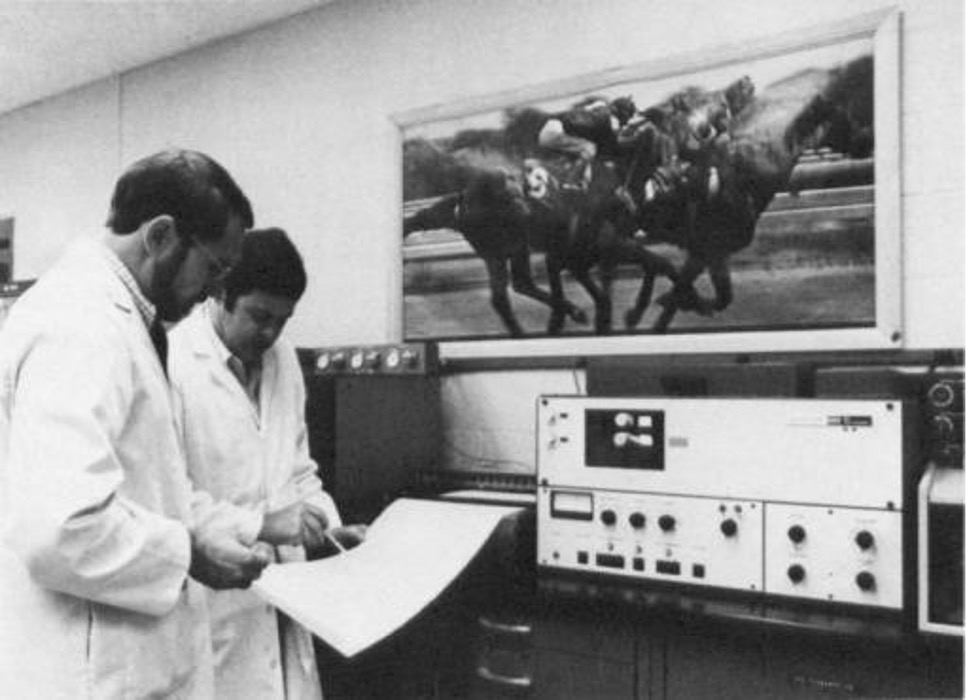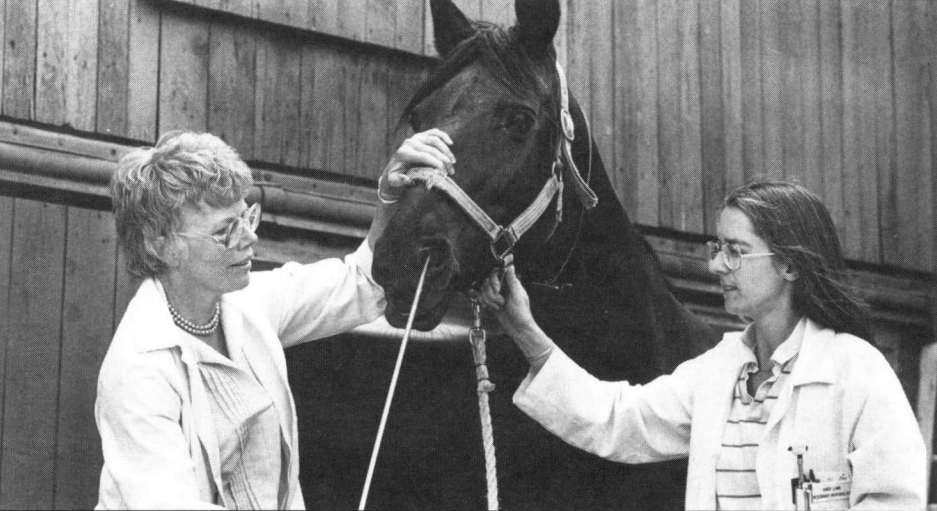Equine Park History
The Park Opens
1930s and ’40s
The park is located on what used to be Warren Farm, which sold to the State of New York in 1930 for Cornell’s use. Initially housing the Department of Animal Husbandry’s dairy cattle, the location also summered the university’s polo ponies.
1950s and ’60s
After World War II, members of the horse industry in New York approached Cornell and expressed a need for research on equine diseases. Thus, Dr. Stephen Roberts was named chairman of a new Equine Research Committee. The three principal researchers in this cross-campus initiative were active for approximately 20 years: nutritionist Dr. Harold F. Hintz, pathologist Dr. Herbert F. Schryver, and Dr. John E. Lowe, clinician and future director of the Cornell Equine Park.
Among its many priorities, the committee advocated for a dedicated equine research and teaching space. By the end of the decade, Warren Farm was tapped for this purpose when the university’s dairy cows moved to a new space near Dryden.
Early 1970s
In 1973, the Equine Research Park space officially opened and Dr. John “Jack” Lowe was named coordinating director in 1974.
An Eventful Decade
1970s
This is a time of expansion in equine research, programming and space. The main barn required significant remodeling to make it suitable for horses. The park was then designated as a research facility for equine nutrition, drug testing, reproduction and infectious disease. Much of the research done at the park was in collaboration with groups across campus, including the College of Agriculture and Life Sciences.
In 1976, businessman and polo player Dwight Winkelman of Skaneateles, New York, gifted a stallion and a herd of Thoroughbred mares to the park in memory of his late son, Dwight “Cappy” Winkelman, II. The horses were involved in a variety of breeding services, research and teaching efforts across the college.
The park installed a half-mile harness track, along with a stallion barn and separate building for broodmares. Farrier services were also established.
Students were assigned a mare to tend at foaling, and they supervised care of the mare and foal until the next breeding cycle.
Equine Research Advances
In 1979, the new Harry M. Zweig Memorial Fund for Equine Research provided funds for the park and equine research. Research funding also came from the Travers Stakes race held annually in Saratoga, New York.
1980s
Dr. Katherine Houpt launched the Equine Behavior Clinic at the park. The Equine Performance Testing Clinic opened, including a respiratory function testing unit and lameness and gait analysis unit.
After 15 years in the role, Dr. Lowe stepped aside as park director in 1988. Carol Collyer took the reins as barn manager and director of equine services.
1990s
The Theriogenology Service continued to expand, specializing in all aspects of animal reproductive health. The park’s facilities were actively used for treating and evaluating breeding soundness and other conditions.
By this time, discoveries aided by park horses have fundamentally advanced equine health and husbandry, including efforts by the original three equine research program pioneers Hintz, Schryver and Lowe. Their collaborations led to leaps in overall equine health, particularly regarding nutritional standards for health and performance, how physiology affects horse nutrition, the biomechanics of horse locomotion, drug control policies for the horse show industry, foundational colic and laminitis research and much more.
The Equine Park Today
As an operational farm, the Cornell Equine Park allows students to experience the daily work of an equine practitioner, providing a well-rounded education in horse-care management and veterinary care at one time.
Following Collyer’s retirement in 2010, her position was divided between director and farm manager. After interim leadership, Dr. Robert Gilbert assumed the role of director, followed by Dr. Lisa Fortier, Dr. Soon Hon Cheong and Dr. Heidi Reesink. Scott Baxendale was named farm manager, followed by Jessica Crumb.
In 2018, a structural investigation of the park’s main barn, decades old by this time, determined a new facility was needed.
Construction began in 2022, creating a new main barn and additional facilities. The remodel consolidated multiple equine operations from various locations across Cornell and Ithaca. The park houses research, teaching and client horses.
Construction at the park concluded in the summer of 2024.



